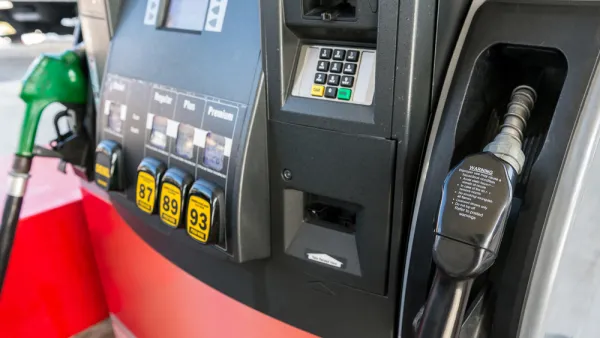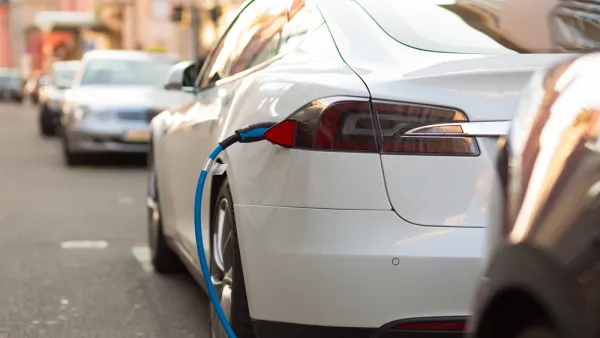Ben Adler of Grist writes how falling oil prices will affect climate change. Cheaper gas prices may encourage more driving and more truck sales at the expense of hybrid, electric, and fuel efficient cars, but the news may not be all bad.
The media has mostly written about the economic benefit brought by falling gas prices. "It is estimated that for every one cent decline in gasoline prices (sustained over one year), $1.4 billion is added to the economy," writes The Hill contributor, David Russell, Jr.
But Adler reminds us of two considerable environmental downsides: "(M)ore gasoline burning and less investment in cleaner alternatives and technologies" which will increase greenhouse gas emissions.
Low oil prices reduce the financial incentives to use less oil or switch away from it. That could slow or even reverse the current trend of declining emissions caused by reduced driving and more fuel-efficient cars.
Falling gas prices do not bode well for President Obama's rigorous fuel efficiency standard of "54.5 mpg by 2025 standard" that contributed to U.S. gasoline consumption peaking in 2004.
American automakers don’t improve efficiency unless they’re forced to. Drivers in the U.S. have prized other features, like size and speed, over fuel economy, and the auto industry has shortsightedly fed their gluttonous appetites.
Even before the precipitous drop in oil prices, hybrid sales were falling, and the auto market began shifting from an emphasis on fuel economy to performance as Michael Sivak's research from the University of Michigan indicated. EPA will conduct a mid-term review of the standard in 2017, and gasoline prices south of $3 per gallon may not bode well to retain it.
While the media has indicated that the reason why Saudi Arabia has not cut its production (to keep prices higher) is to retain market share, Adler speculates a more sinister reason: "(T)hey may benefit more in the long run from keeping prices low enough that we do not free ourselves from oil dependence."
The one up-side to falling oil prices may be that some of the dirtier, more carbon intensive forms of oil, such as tar sands, or energy-intensive forms or extraction, such as fracking, may initially no longer be economical due to higher extraction costs.
Deborah Gordon, director of the Energy and Climate Program at the Carnegie Endowment for International Peace describes the "four categories of crudes that pose the biggest climate gamble" for The Hill.
FULL STORY: Will falling gas prices be bad for the climate?

National Parks Layoffs Will Cause Communities to Lose Billions
Thousands of essential park workers were laid off this week, just before the busy spring break season.

Retro-silient?: America’s First “Eco-burb,” The Woodlands Turns 50
A master-planned community north of Houston offers lessons on green infrastructure and resilient design, but falls short of its founder’s lofty affordability and walkability goals.

Delivering for America Plan Will Downgrade Mail Service in at Least 49.5 Percent of Zip Codes
Republican and Democrat lawmakers criticize the plan for its disproportionate negative impact on rural communities.

Test News Post 1
This is a summary

Test News Headline 46
Test for the image on the front page.

Balancing Bombs and Butterflies: How the National Guard Protects a Rare Species
The National Guard at Fort Indiantown Gap uses GIS technology and land management strategies to balance military training with conservation efforts, ensuring the survival of the rare eastern regal fritillary butterfly.
Urban Design for Planners 1: Software Tools
This six-course series explores essential urban design concepts using open source software and equips planners with the tools they need to participate fully in the urban design process.
Planning for Universal Design
Learn the tools for implementing Universal Design in planning regulations.
EMC Planning Group, Inc.
Planetizen
Planetizen
Mpact (formerly Rail~Volution)
Great Falls Development Authority, Inc.
HUDs Office of Policy Development and Research
NYU Wagner Graduate School of Public Service




























